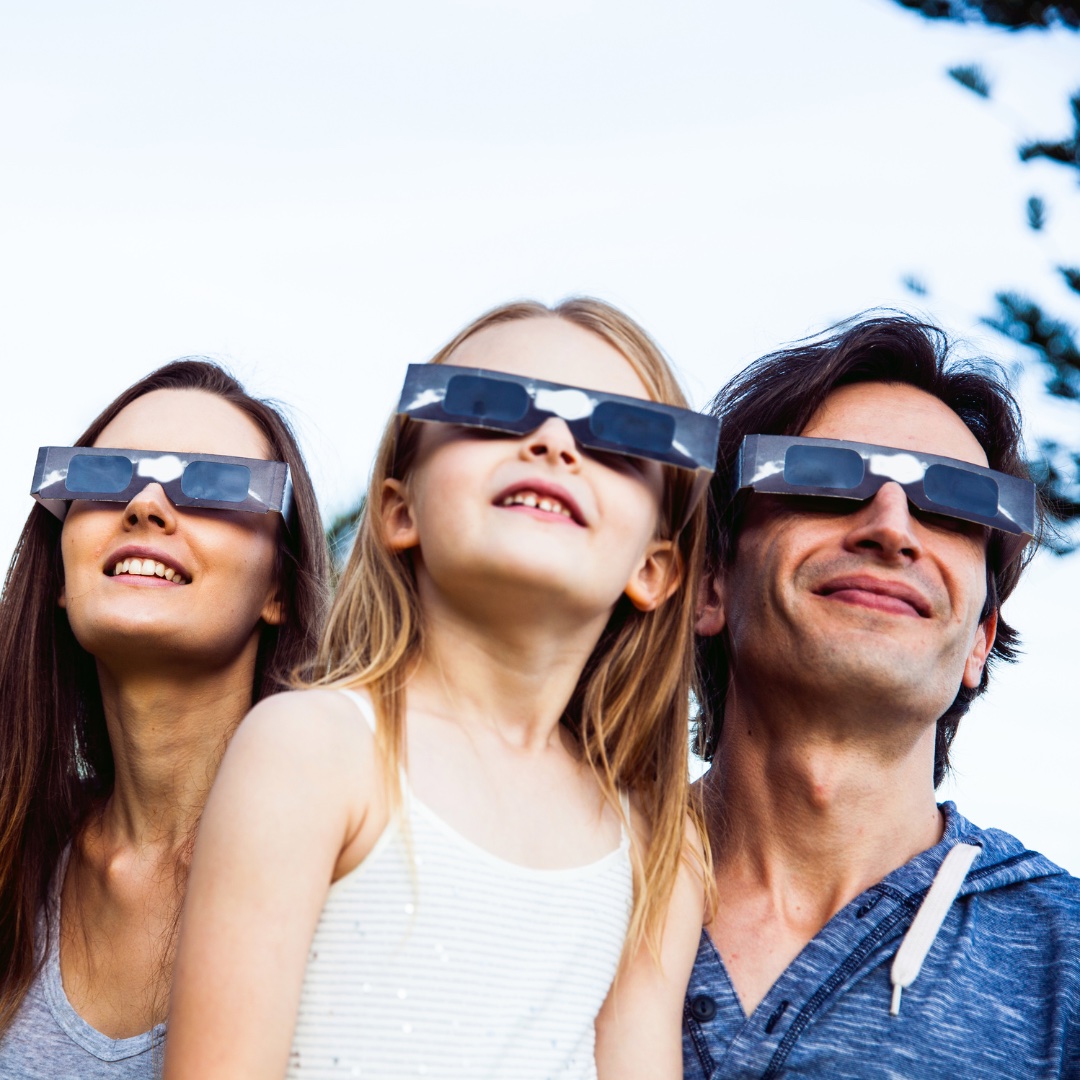Solar Eclipse Eye Safety: How to Prevent Eye Damage

As nature presents us with an awe-inspiring solar eclipse on April 8th, it's crucial to remember that safeguarding your vision should be a top priority. A solar eclipse is a captivating phenomenon where the moon partially or fully (totality) covers the sun. Viewing a solar eclipse without proper precautions can lead to severe damage to the retina.
Understanding Retinal Damage
The retina is a delicate layer of tissue located at the back of the eye that captures light and sends visual signals to the brain. Prolonged exposure to the intense light of the sun, even during an eclipse, can cause solar retinopathy—a condition where the light-sensitive cells of the retina become damaged. Solar retinopathy, also known as “eclipse blindness”, can cause eye pain and even permanent vision loss. Because the retina lacks pain receptors, you may not immediately realize the harm occurring to your eyes until symptoms manifest later.
“During the last solar eclipse, we saw many patients that lost vision, even going legally blind, because they looked at the sun without protection,” says retina specialist Dr. Philip Storey. “It is really important that you have the proper protective eyewear because sunglasses are not enough to protect your vision.”
As retina specialists, we're committed to ensuring your eye health remains uncompromised. Here's how you can safely enjoy the solar eclipse and prevent permanent eye damage.
Safe Eclipse Viewing Practices
• Solar Eclipse Glasses: The most reliable way to view a solar eclipse is by wearing specially designed solar eclipse glasses. These glasses are equipped with certified solar filters that block harmful ultraviolet, visible, and infrared rays. Ensure the glasses meet the ISO 12312-2 international safety standard.
• Pinhole Projection: If you don't have access to eclipse glasses, you can create a pinhole projector using simple materials like cardboard. Poke a small hole in a piece of cardboard and allow sunlight to pass through it onto another surface, such as a sheet of paper. You'll see the sun's image projected without directly exposing your eyes to its harmful rays.
• Digital Devices: Avoid using smartphones, cameras, or other digital devices to capture or view the eclipse without appropriate solar filters. The bright light emitted by these screens can still cause retinal damage.
• Telescopes and Binoculars: Never look at the sun through telescopes, binoculars, or cameras without proper solar filters. Doing so can magnify the sun's intensity, leading to rapid and severe eye damage.
• Timing: The safest time to view a solar eclipse without special equipment is during totality, when the moon completely covers the sun. However, our retina specialists urge you to use caution if you choose not to wear eye protection during this brief time (1-2 minutes). If you look towards the sun as the moon moves away, you are at risk of damaging your retina.
• Live Stream: Consider watching the eclipse online via NASA’s live stream.
Post-Eclipse Symptoms
After viewing the solar eclipse, be mindful of any unusual symptoms that may indicate retinal damage, such as blurred vision, distorted vision, altered color vision, or central blind spots. Symptoms may occur within a few hours to a few days after viewing the solar eclipse. If you experience any of these symptoms, seek immediate medical attention from an eye care professional.
While witnessing a solar eclipse is a remarkable experience, protecting your vision should always take precedence. By following these safety guidelines and adopting responsible viewing practices, you can enjoy the spectacle of a solar eclipse without compromising your eye health.
Central Texas Retinal Specialists
Austin Retina Associates treats a wide range of retinal conditions. Our experienced team of retina specialists in Austin are dedicated to improving your vision and quality of life.
Contact us at 800-252-8259, or request an appointment online at one of our retina treatment centers located in Austin and throughout Central Texas.
For the latest Austin Retina news, visit our blog or follow us on Facebook and Instagram.